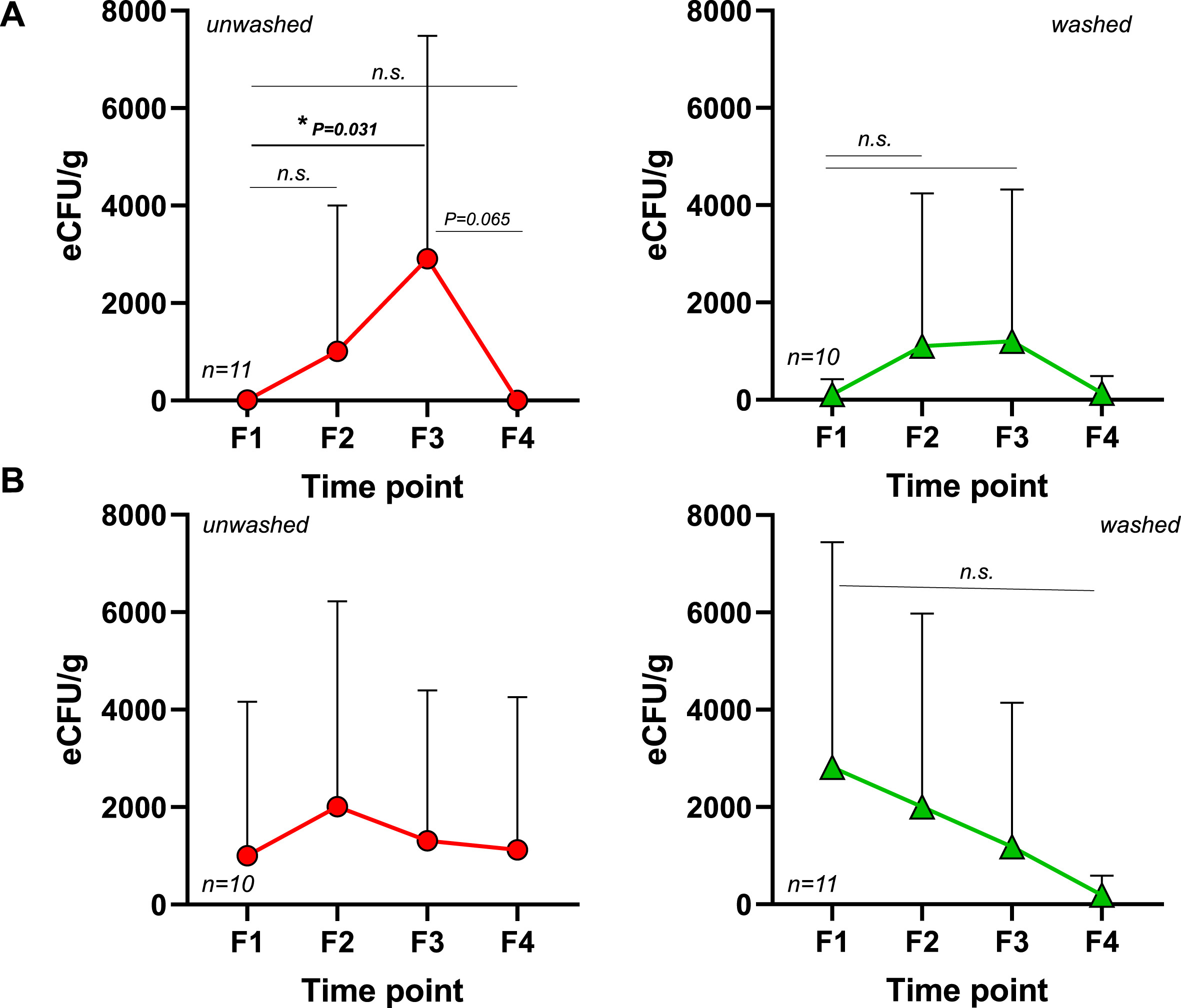It was theorized that modernization and the decline in harmless microbial populations associated with food have altered the gut microbiota, impacting host metabolism and immunity. Western dietary patterns, characterized by processed foods and preservation methods, may significantly reduce the microbial population associated with food. To mitigate the consequences of bacterial deprivation, the integration of these diets with fermented foods is commonly proposed. Nonetheless, non-fermented food consumed raw may also be an important source of viable microbial cells for the human microbiome. In this study conducted by Università degli Studi di Milano, it investigates whether salad-associated LAB can survive the gastrointestinal transit (GIT) and contribute to the gut microbiota. They used LC Sciences’ 16S rRNA sequencing service on feces samples from the volunteers in the study. LAB strains were quantified and isolated from rocket salad (Eruca vesicaria subsp. sativa), and their survival through GIT was assessed via intervention trials in healthy adults and in vitro. Moreover, bacterial communities in fecal samples were analyzed after three days of rocket salad consumption. Washing with a sodium hypochlorite solution drastically reduced total bacterial load and eliminated viable LAB. The quantity of LAB introduced through salads did not significantly alter the gut microbiota composition. Rocket salads harbored Weissella and Leuconostoc species. A significant increase in Weissella spp. but not in Leuconostoc spp. was observed after the consumption of rocket salad. Simulated GIT experiments suggested that the food matrix and the initial number of ingested viable bacteria may have been important in determining survival. These findings propose that plant products could serve as sources of live LAB for the human gut. Further research with diverse vegetables and longer interventions is needed, encouraging studies on raw, non-fermented foods and their impact on the human intestinal microbiome.
Recovery on MRS agar (pH 6.7) of viable cells of the dominant lactic acid bacterial species from rocket salads in feces collected at the end of the three-day intervention trials
Panel A: Intervention with rocket salad R1 with (on the right, in green) or without (on the left, in red) washing using a sodium hypochlorite solution. Panel B: intervention with washed (on the right, in green) and unwashed (on the left, in red) rocket salad R2. Data are presented as the estimated minimum CFU count (eCFU; see the Methods section for details). Statistical analysis was performed using a Wilcoxon signed-rank test; *, p < 0.05; n.s., not significant.
Mantegazza Giacomo, Duncan Robin, Telesca Nicolò, Gargari Giorgio, Perotti Susanna, Riso Patrizia, Guglielmetti Simone. (2024) Lactic acid bacteria naturally associated with ready-to-eat rocket salad can survive the human gastrointestinal transit. Food Microbiology 118, 104418. [article]
It was theorized that modernization and the decline in harmless microbial populations associated with food have altered the gut microbiota, impacting host metabolism and immunity. Western dietary patterns, characterized by processed foods and preservation methods, may significantly reduce the microbial population associated with food. To mitigate the consequences of bacterial deprivation, the integration of these diets with fermented foods is commonly proposed. Nonetheless, non-fermented food consumed raw may also be an important source of viable microbial cells for the human microbiome. In this study conducted by Università degli Studi di Milano, it investigates whether salad-associated LAB can survive the gastrointestinal transit (GIT) and contribute to the gut microbiota. They used LC Sciences’ 16S rRNA sequencing service on feces samples from the volunteers in the study. LAB strains were quantified and isolated from rocket salad (Eruca vesicaria subsp. sativa), and their survival through GIT was assessed via intervention trials in healthy adults and in vitro. Moreover, bacterial communities in fecal samples were analyzed after three days of rocket salad consumption. Washing with a sodium hypochlorite solution drastically reduced total bacterial load and eliminated viable LAB. The quantity of LAB introduced through salads did not significantly alter the gut microbiota composition. Rocket salads harbored Weissella and Leuconostoc species. A significant increase in Weissella spp. but not in Leuconostoc spp. was observed after the consumption of rocket salad. Simulated GIT experiments suggested that the food matrix and the initial number of ingested viable bacteria may have been important in determining survival. These findings propose that plant products could serve as sources of live LAB for the human gut. Further research with diverse vegetables and longer interventions is needed, encouraging studies on raw, non-fermented foods and their impact on the human intestinal microbiome.
Recovery on MRS agar (pH 6.7) of viable cells of the dominant lactic acid bacterial species from rocket salads in feces collected at the end of the three-day intervention trials
Panel A: Intervention with rocket salad R1 with (on the right, in green) or without (on the left, in red) washing using a sodium hypochlorite solution. Panel B: intervention with washed (on the right, in green) and unwashed (on the left, in red) rocket salad R2. Data are presented as the estimated minimum CFU count (eCFU; see the Methods section for details). Statistical analysis was performed using a Wilcoxon signed-rank test; *, p < 0.05; n.s., not significant.
Mantegazza Giacomo, Duncan Robin, Telesca Nicolò, Gargari Giorgio, Perotti Susanna, Riso Patrizia, Guglielmetti Simone. (2024) Lactic acid bacteria naturally associated with ready-to-eat rocket salad can survive the human gastrointestinal transit. Food Microbiology 118, 104418. [article]

